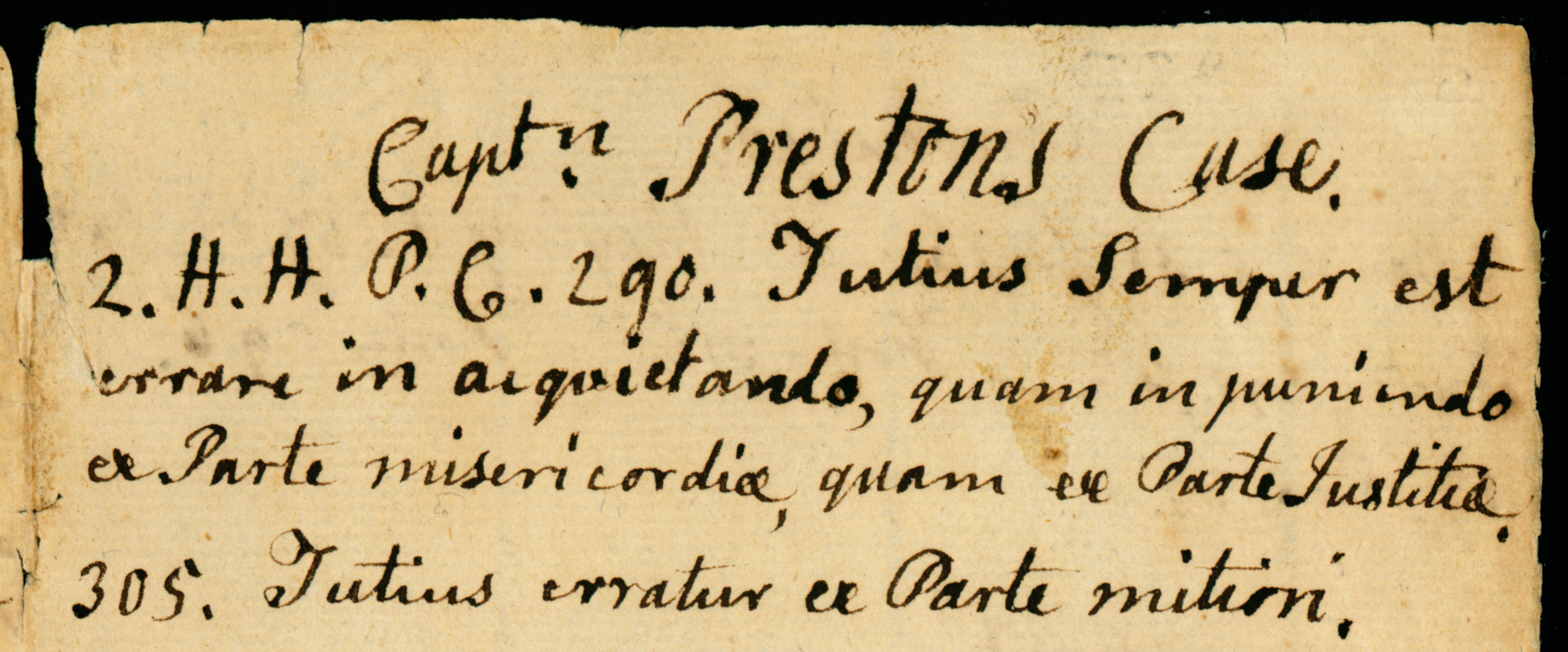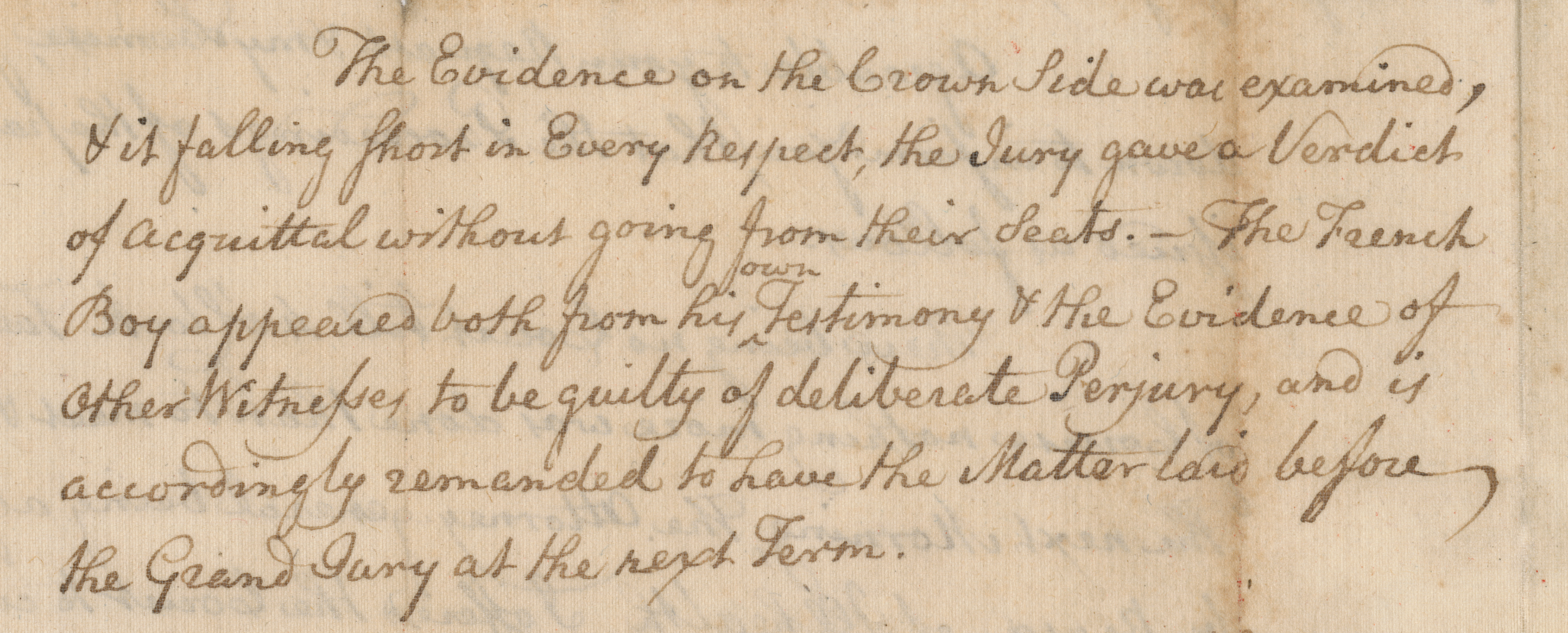
Within a day of the bloody incident, Capt. Thomas Preston and eight soldiers of the 29th Regiment were imprisoned, the search for attorneys for both sides began, and indictments for murder were secured. Boston patriot leaders encouraged a special prosecutor, Robert Treat Paine, to pursue the case. Under contested and obscured circumstances, John Adams and Josiah Quincy were retained to represent the prisoners.
Paine, joined by the newly appointed Attorney General Quincy, had a straightforward argument for the prosecution—all killing is, on its face, murder. The defense was more complicated. To prevent mutual finger pointing and a possible mass conviction, the captain’s trial needed to be severed from that of his men. The best defense for Captain Preston was to show that he had not ordered the men to fire. As for the soldiers, John Adams’s primary legal strategy was to prove justifiable homicide—self-defense from a dangerous and unlawful gathering.
John Adams took copious notes during Captain Preston's case, and documented the rest of the Boston Massacre trials just as diligently. Visit the Adams Papers portal to read more of his court notes.

Notes on the Boston Massacre trials, by John Adams, 1770, "Captn. Prestons Case"
Loyalist Samuel Quincy wrote to patriot Robert Treat Paine about the progression of the soldiers' trials on 16 December 1770.

Letter from Samuel Quincy to Robert Treat Paine, 16 December 1770
In the 18th century, when nearly all trials were begun and resolved in a single day, these trials are unusual for their length. Each lasted a week, leaving the attorneys to work through a heavy load of testimony. When the verdict was returned, all but two were acquitted. Private Hugh Montgomery, who had been the first to fire, and Private Matthew Kilroy, who deliberately aimed at people in the crowd, were found guilty of manslaughter.
In his autobiography, John Adams describes the series of trials as an exhausting experience.

John Adams autobiography, part 1, "John Adams," through 1776 sheet 12 of 53, 1768-1770, pp. 4
Adams' closing remarks during the soldiers' trial would become well-known in relation to the legacy of the Boston Massacre. He was only thirty-five years old when the trials took place.
 Click here to read more of Adams' closing remarks, reproduced on page 177 of the pamphlet, The Trial of William Wemms... as part of the Annotated Newspapers of Harbottle Dorr, Jr.
Click here to read more of Adams' closing remarks, reproduced on page 177 of the pamphlet, The Trial of William Wemms... as part of the Annotated Newspapers of Harbottle Dorr, Jr.